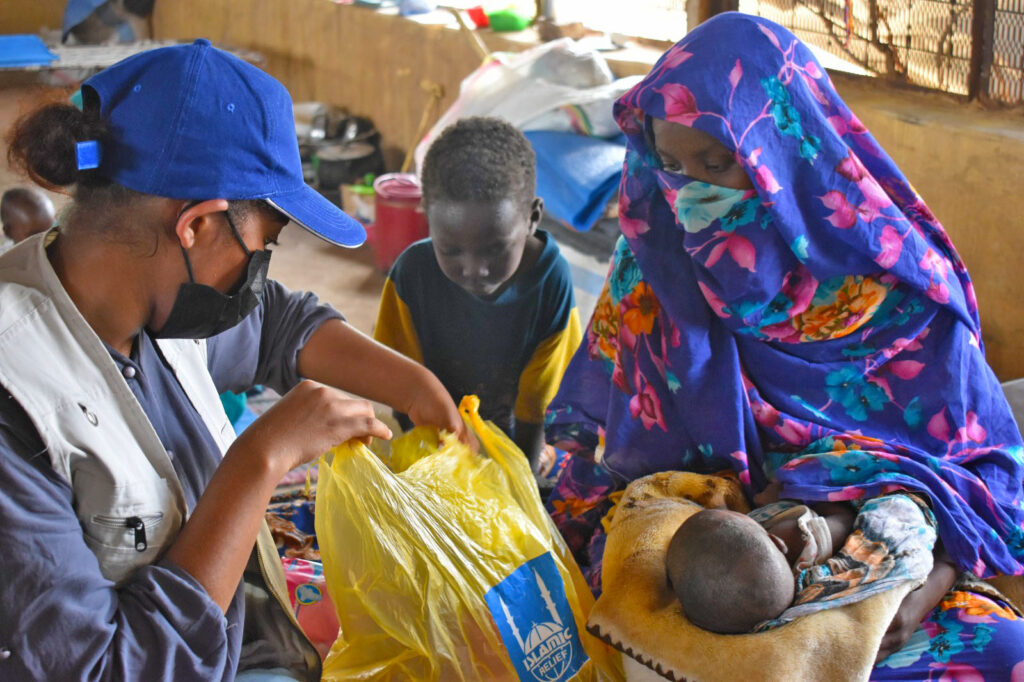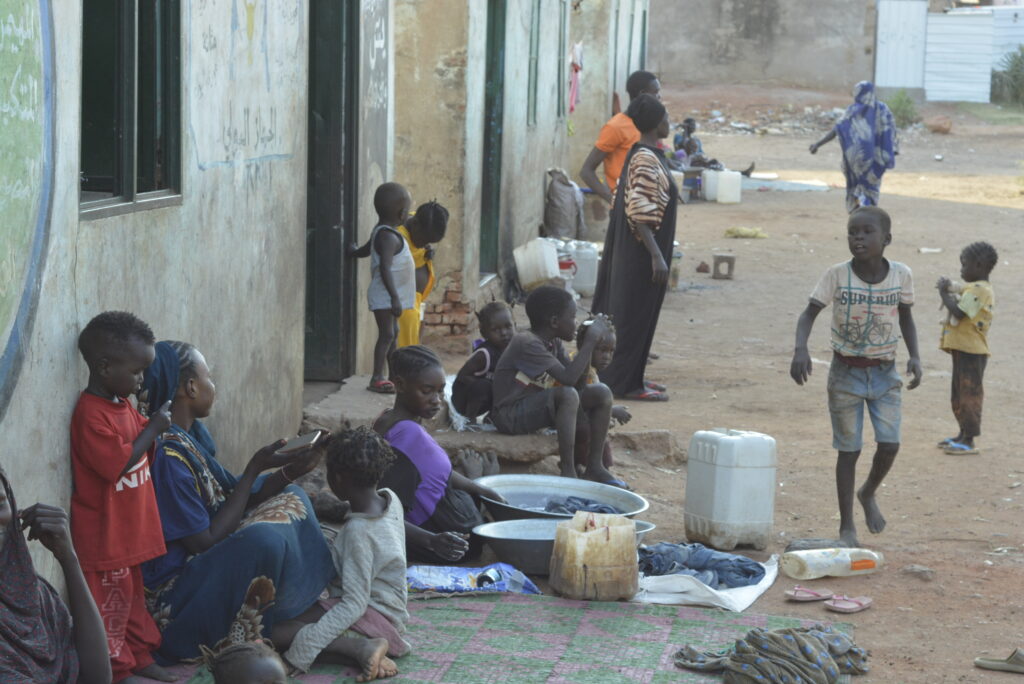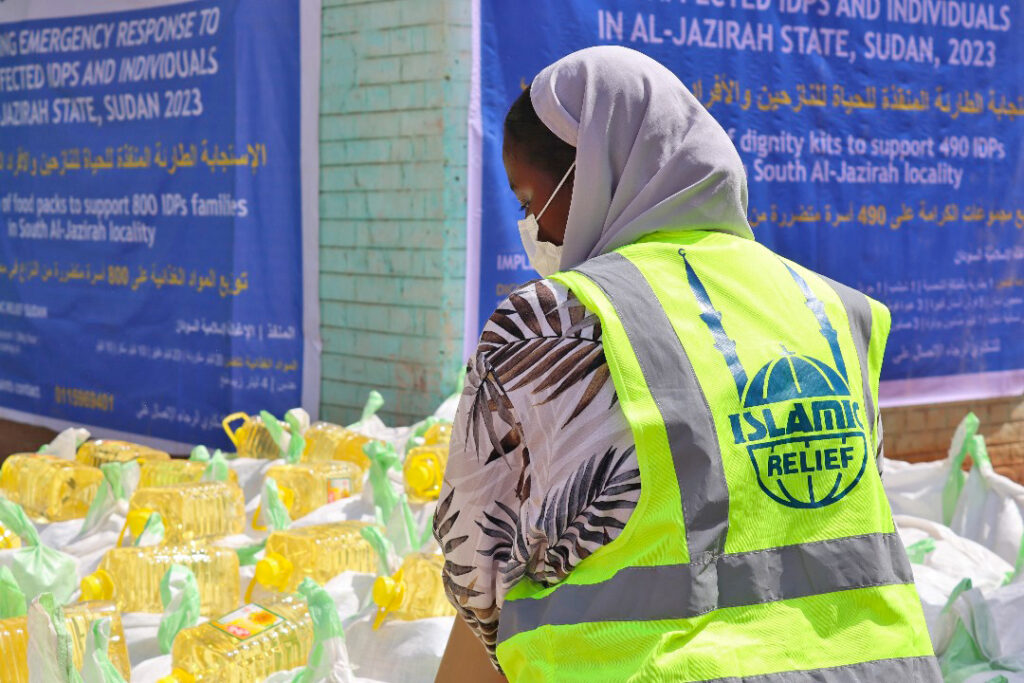Sudan is at imminent risk of collapsing after one year of violent conflict. It is on the verge of mass famine, its food supply decimated and young children now starving to death in its cities, villages, and displacement camps.
24.8 million people – almost half the population, now need humanitarian assistance.
Our staff in Sudan are providing ongoing relief for the crisis in 3 areas: Khartoum State, North Kordofan and Al Jazirah State. We’re focusing our immediate efforts on providing the most urgent relief, including:

On April 15, violence erupted in Sudan as rival factions fought for control of the country’s capital. Civilians bore the brunt of the fighting when it spread across the country. Heavy fighting broke out within residential areas and close to hospitals, leaving thousands of families trapped in their homes without food and water.
Over the past year, the war has spread across the country, creating what is now the world’s largest displacement crisis. 8.4 million people – 2 million of them children under 5 years old – have been forced to flee their homes. Many are living in temporary camps where conditions are abysmal.
Today, the death toll confirms 15,000 people killed, however, with the number of fatalities potentially underreported, it is likely much higher. In addition, the number of deaths caused by hunger, disease and lack of basic services, could raise the number far higher.

17.7 million people are now suffering high levels of acute food insecurity, with 5 million people just one step away from famine.
Food prices have increased by 83% in the past year – and more than doubled in many areas. 95% of displaced people say food is available but unaffordable.
Children are now dying of hunger. More than 3.4 million children are now reported to be acutely malnourished and many families are eating just a few mouthfuls of sorghum a day.
The humanitarian situation is dire, with families struggling to survive and meet their basic needs.
Islamic Relief’s first humanitarian response in Sudan was in response to the famine in 1984, where we provided vital food aid to people in need.
Since then, our focus has been on long-term development assistance. Initiatives that help pull vulnerable communities out of the cycle of poverty, during and beyond emergencies.
These include providing access to healthcare and education, caring for orphans (Orphan Care), and Qurbani+ (Plus), an initiative that seeks to increase the income of families by partnering with them in an Islamic microfinance livelihood program connected to Eid al-Adha.
Islamic Relief also provides humanitarian aid for internally displaced people, returnees, and other vulnerable populations, and emergency aid for flood-affected families including access to clean water and sustainable livelihood support.

Over the past year, Islamic Relief has had to move its main office in Sudan several times. Sudan is now one of the most dangerous and difficult places to deliver humanitarian aid, with dozens of aid workers killed, offices looted and regular bureaucratic obstruction.
Despite the challenges, Islamic Relief has delivered vital aid to more than 650,000 people all over the country.
With your help, over the past year, we were able to distribute food and cash, support health facilities and provide hygiene and dignity kits to thousands. But, as the violence continues to spread, the people of Sudan still need your help.
We’ve been in Sudan since 1984 but we need your help to continue to make a difference. Give now to support families in need.